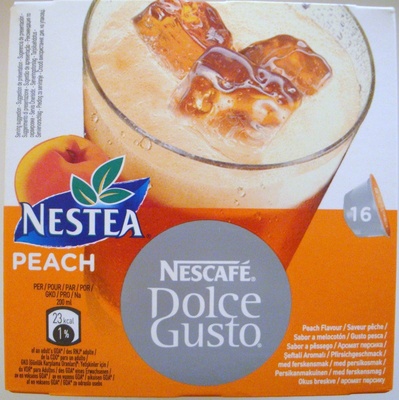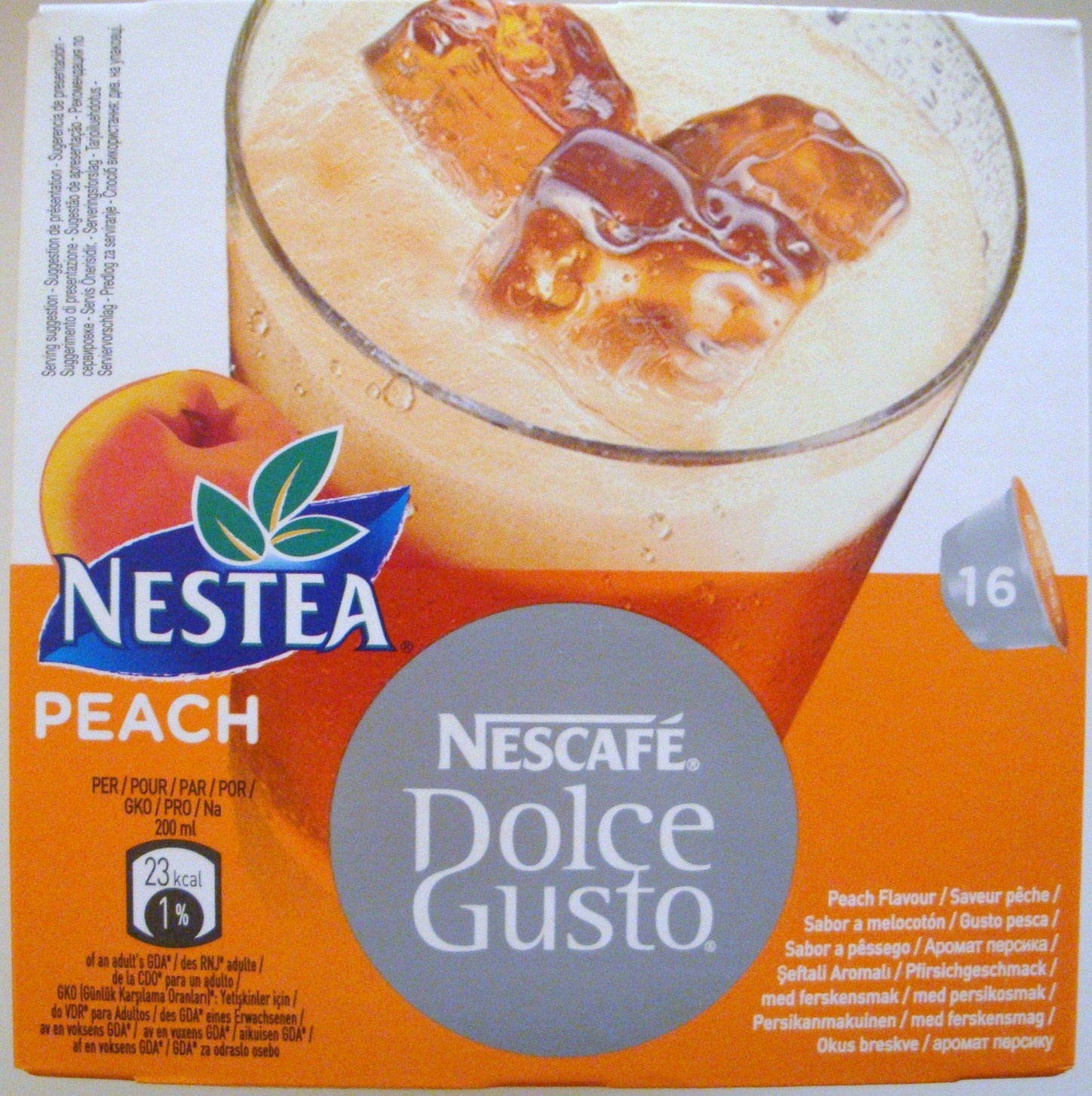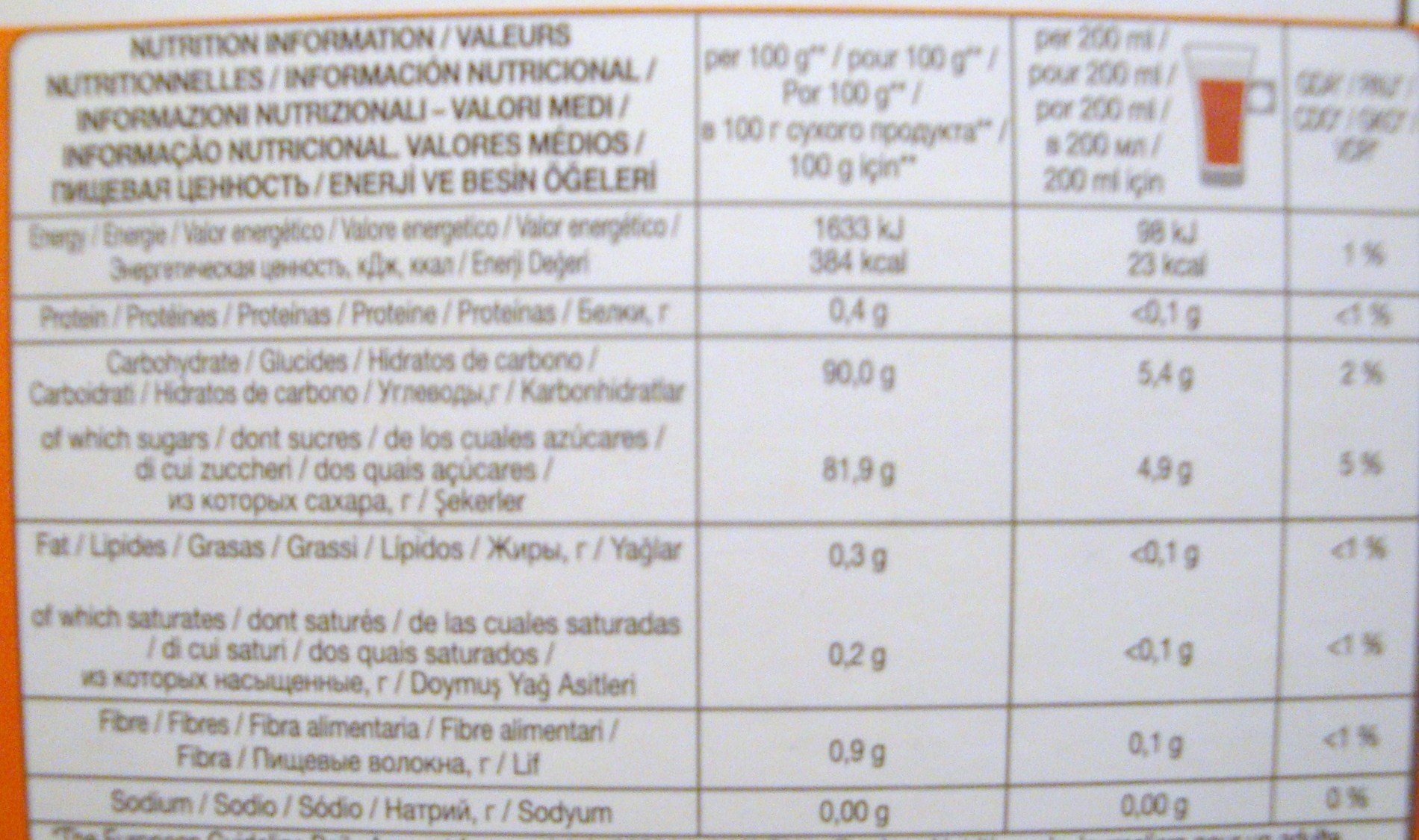Dolce Gusto Nestea peach - Nescafé - 96 g
This product page is not complete. You can help to complete it by editing it and adding more data from the photos we have, or by taking more photos using the app for Android or iPhone/iPad. Thank you!
×
Barcode: 7613032713041 (EAN / EAN-13)
Common name: Boisson instantanée à base d'extrait de thé, à l'arôme pêche, avec sucre et édulcorant
Quantity: 96 g
Packaging: Plastic, Box, Cardboard, Individual dose
Brands: Nescafé
Categories: Beverages and beverages preparations, Plant-based foods and beverages, Beverages, Hot beverages, Plant-based beverages, Teas, Artificially sweetened beverages, Capsules, Tea-based beverages, Dolce Gusto-compatible capsules, Iced teas
Labels, certifications, awards: Low or no sugar, Low sugar, Reduced sugar
Stores: Boutique Internet Dolce Gusto
Matching with your preferences
Environment
Carbon footprint
Packaging
Transportation
Report a problem
Data sources
Product added on by adline
Last edit of product page on by roboto-app.
Product page also edited by date-limite-app, jaguilar-alfonzorivas-com, lilimarti, maelysd12, mathias, musarana, packbot, teolemon, yuka.U2IwT1Q1b2RxTkkzcThJdTdBN3UxZU5RL1k2RFl6eUxNdkk5SVE9PQ.








